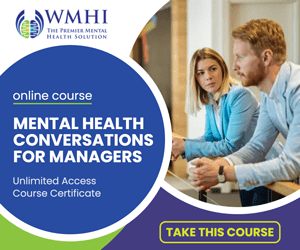Like physical health, everyone needs to maintain good mental health to live well and remain comfortable or happy. Mental health includes our emotional, psychological, and social well-being. Good mental health enables us to think, act, feel, and function well. It also ensures we make the best choices, handle stress properly, and foster positive relationships with others.
It’s essential to draw the line between mental health and a mental illness or disorder. Although often used interchangeably, they are not the same thing. The absence of mental conditions like clinical depression, anxiety, bipolar disorder, etc., doesn’t automatically translate to good mental health. Meanwhile, people living with mental illnesses can experience periodic mental, physical, and social wellness.
Anyone’s mental health state can change over time. It all depends on how well one can cope with numerous factors or circumstances in the environment. As we navigate life, having self-confidence is one of the multiple ways to maintain good mental health. This article explains the relationship between self-confidence and mental health and why you should understand both concepts.
What Is the Difference Between Self-Confidence and Self-Esteem?
Like with mental health and mental illness, self-confidence and self-esteem overlap; however, they are not the same thing. Self-confidence means trusting in your skills and abilities. When you’re confident, you know your strengths and weaknesses and understand how to channel them positively. Confidence comes from the Latin word “fidere,” which means “full trust.”
On the other hand, self-esteem refers to your opinion about yourself. Self-confidence is one of the four elements of self-esteem. Other components are a sense of identity, competence, and social belonging or connectedness.
Many people with self-esteem issues lack self-confidence and vice-versa. That’s because everyone needs a healthy level of self-esteem to develop and maintain self-confidence. Both self-esteem and self-confidence can significantly affect or determine your mental health state.
Ten Common Signs of Low Self-Confidence

Here’s how to tell if you have an unhealthy level of self-confidence:
1. Constant Worry About What People Think About You
While it is healthy to respect other people’s constructive criticism about yourself, constantly worrying about their opinion of you isn’t. When you’re confident, you don’t live for people’s approval. As such, you wouldn’t care so much what they think about you.
Self-confidence makes you love and feel secure in yourself. When that’s the case, you wouldn’t need external perceptions about your life to feel strongly about your abilities.
2. A Lack of Ambition
When you lack self-confidence, you don’t think you have what it takes to live the life of your dreams. As such, you will feel that there’s no need to aspire for more. Lack of confidence makes you settle for less than you want or deserve. Over time, low self-confidence will make you believe that you’re missing an essential ingredient for success.
3. Inability to Take Constructive Criticism
When you’re confident, you don’t feel bad when people point out your weaknesses. That’s because most of the time, self-confident people already know their inadequacies and are working on them.
If they weren’t already aware of their shortcomings, they accept constructive criticism because they know their failures don’t define them. Instead, their strong belief in themselves makes them realize that they have the power to improve on their mistakes.
When you’re self-confident, you accept only constructive criticism — the one that spurs you to do better. If someone amplifies your pitfalls to make you feel less of yourself, self-confidence will help you contextualize it. If such criticism isn’t helpful, you discard it and move on with your life.
4. You Make Excuses and Blame Others For Your Mistakes
Self-confident people are strong enough to accept responsibility for their actions. They don’t go about pushing the blame on other people or acting the victim.
When you have confidence in yourself, you’re unwilling to make excuses for your shortcomings. You also realize that your mistakes don’t make you inferior. So, instead of explaining or justifying your wrong duties, you’ll take action by finding ways to fix the problem.
5. Pessimism
People who don’t believe in their abilities typically train themselves to question everything. They’re also generally pessimistic because they don’t think they can achieve anything worthwhile. Unfortunately, when you lack self-esteem, it can rub off on others close to you. You will constantly convince your loved ones about impending calamities because of what you tell yourself.
6. Fear of the Future
When confident people face hardships, they take some time to strategize and overcome the challenges. That’s because they believe in their ability to create a great future for themselves. So, they will fight anything that comes in the way of their success.
It’s quite the opposite for persons with low self-confidence. Instead of looking forward with hope, lack of confidence makes them wallow in the uncertainties.
7. You Always Apologize
It’s okay to apologize when you’re wrong or when your actions hurt someone else. However, constantly saying “I’m sorry” even when unnecessary reeks of low self-confidence. If you have low self-confidence, you’ll apologize for everything because you feel it’s all your fault even if it isn’t.
8. Social Anxiety and Shyness
From avoiding eye contact to withdrawing from pubic settings, and nervousness, lack of confidence can cause social anxiety and shyness. That’s because low self-confidence will make you scared of embarrassing yourself in the presence of others. Since you think you are incompetent, you may feel that other people will notice your inadequacies. You’d prefer to withdraw from social gatherings than let that happen.
9. No Boundaries
Lack of confidence will make you want to overcompensate for your perceived inadequacies by trying to please everyone. As such, you wouldn’t want to say no to anyone. It also opens you up to abuse and further reduces your self-esteem. Lacking boundaries make it easy for other people to take advantage of you.
10. Refusal To Speak Up
Now and again, situations will arise that mandate you to speak up for yourself. However, you need a healthy level of self-confidence to do that. People who lack confidence refuse to argue with people as they prefer to seek approval instead. They will generally not speak in group settings, too, because they worry about sounding silly.
How Does Lack of Self-Confidence Affect My Mental Health?

One of the best things you can do to achieve good mental health is to learn self-confidence. In fact, confidence in the face of new situations is one of the first ways to determine good mental health. According to WHO, mental health includes a state of well-being where you realize your abilities. So self-confidence isn’t merely linked to mental health; it is mental health.
It’s almost impossible to live a happy life without self-confidence. Apart from your mental health, a lack of self-confidence will affect your work and relationship with others. It will make you difficult to communicate with, indecisive, and exhausted.
Low self-confidence affects your self-esteem, which can trigger mental issues. For example, research shows that there’s a strong link between low self-esteem and depression.
What Causes Lack of Self-Confidence?

Finding the root cause of low self-confidence is a challenging task as there are many possible triggering factors. These are the most common ones:
- Childhood Bullying and Harassment
Childhood experiences, whether good or bad, can affect how you turn out in adulthood. If you had to endure bullying and harassment as a child, it could leave a dent in your confidence. Such low self-confidence can follow you to adulthood and make you incapable of speaking up for yourself.
- Abuse and Trauma
Traumatizing experiences as a child or even in adulthood can evoke negative feelings and lower self-confidence. People who suffer continuous abuse will typically replay negative scenarios in their minds that make them ashamed.
- Perfectionism
Sometimes, low self-confidence can stem from your need to be perfect. Since attaining perfection is an impossible task, you will always fail at it. Such failures can make you feel incompetent and incapable of achieving anything tremendous and cause low self-esteem.
- Biological Factors
Genetics can play a role in how you feel about yourself. There are specific brain chemicals that can help to boost self-confidence. For example, Serotonin is a neurotransmitter that can make you happy and, indirectly, confident. Specific temperaments and behavioral tendencies can also contribute to your confidence or lack thereof.
- Socialization
The society or community you live in can make you feel less about your capabilities. That’s especially if you’re of a particular gender, ethnicity, or sexual orientation. Discrimination in any shape or form can lower your confidence levels.
Can I Improve My Self-Confidence?

Enhancing your confidence levels will depend on what triggered low self-confidence. However, many times, you can expect to see significant improvement by:
- Seeing a therapist
- Analyzing your thoughts
- Accepting failure
- Smiling often
- Acting confident even if you don’t feel like it
Conclusion
Lack of self-confidence can lead to many negative situations, and you shouldn’t let it. Everyone can do great things; it’s essential to recognize that and channel your thoughts and actions accordingly.
Do you want to know more about improving your overall mental health? Our online portal can help with all the information you need.









